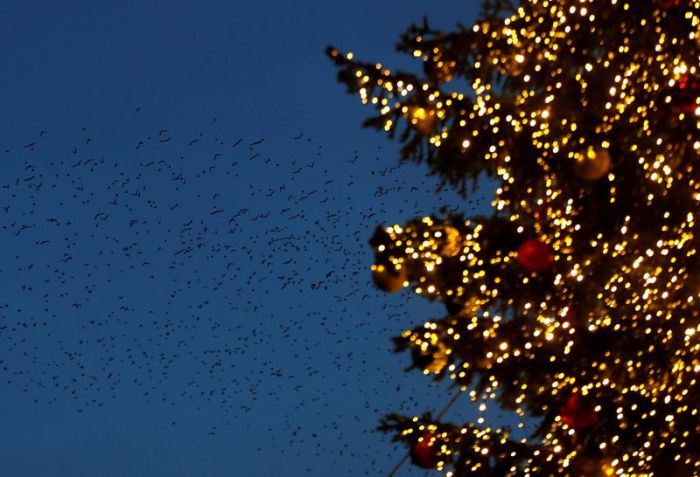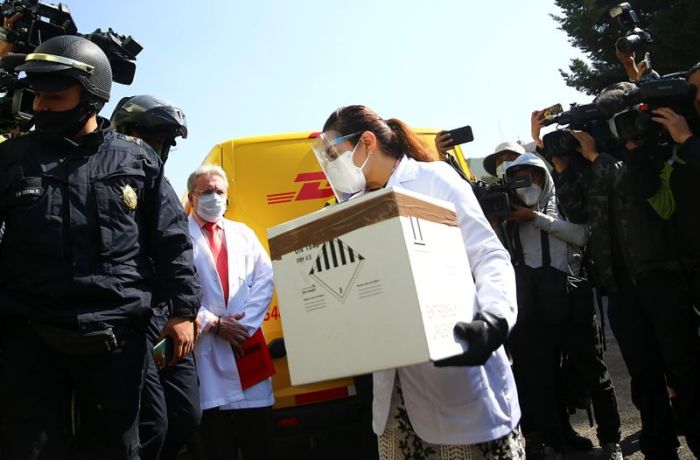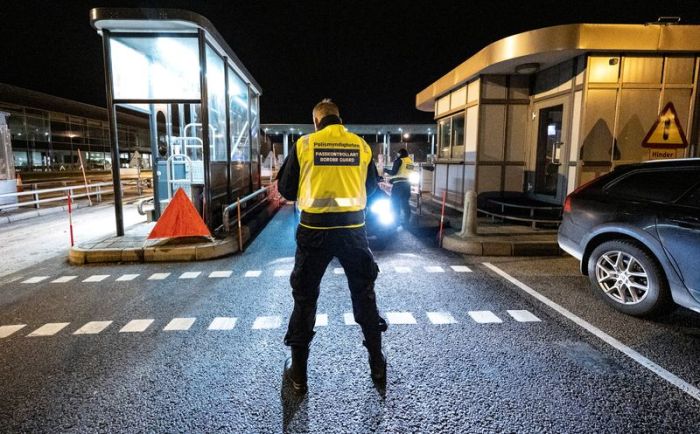BRUSSELS (Reuters) -The European Union is making a “final push” to strike a Brexit trade deal with Britain, although there are still deep rifts over fishing rights, the bloc’s chief negotiator said on Tuesday.
Britain will complete its departure from the EU on Dec. 31 when its current free trade arrangements expire. The two sides have been struggling for months to define a new relationship covering everything from trade to transport and energy.
The much-delayed final stages of the already tortuous negotiations now coincide with a fresh crisis after EU members and other countries suspended most travel to and from Britain to curb a new, more contagious variant of the coronavirus.
“We are really in a crucial moment. We are giving it a final push,” said the negotiator, Michel Barnier, as he arrived to update the bloc’s 27 national envoys on Brexit.
Irish Prime Minister Micheál Martin said he believed negotiators were more likely than not to strike a deal, but that talks may go beyond Dec. 25.
Barnier told the closed-door gathering that the UK’s latest offer on sharing out the fish catch from British waters from 2021 was “totally unacceptable”, according to EU diplomats who spoke on condition of anonymity.
“Barnier is walking a tightrope between London and Paris,” said one diplomat in Brussels, a reference to the small but politically prominent fishing community in northern France that would be affected by any reduction of the EU catch.
A senior diplomat who took part in the meeting with Barnier said the EU’s latest offer on fish was its final one, and added that there was still concern around regulating production standards and state aid to ensure corporate fair play.
NINE DAYS LEFT
Prime Minister Boris Johnson, who campaigned for Brexit in a 2016 referendum, arguing that it would restore Britain’s sovereignty, has repeatedly said it must control its waters and who fishes there.
EU officials and diplomats said the bloc could be willing to cut the value of its fish catch in British waters by around 25%, while Britain was demanding a 30-35% cut.
But the sources said the length of the fisheries transition regime was also an obstacle, as was the question of EU retaliation if London excludes its vessels from British waters afterwards – something that Britain says is excessive.
The UK wants to gradually curb EU access to its fishing waters over three years, while the bloc is proposing six years, to give its fishing industry longer to adjust.
While EU sources said an agreement was getting closer, they warned it might not come in time.
“The EU will not close its door to the UK, and remains ready to negotiate even beyond the 1st of January,” said a third EU diplomat.
With London refusing to request an extension of Britain’s transition out of the EU beyond the end of this year, that would mean a dramatic rupture in trading ties in just nine days’ time.
Around $900 million in annual trade is at risk if Britain, the world’s sixth biggest economy, and the EU – a trading bloc of 450 million consumers – fail to craft a new accord.
Calls between Johnson and Ursula von der Leyen, head of the executive European Commission, which is negotiating with Britain on behalf of the member states, will take place as needed, EU officials said.
(Additional reporting by Bart Biesemans, John Chalmers, Padraic Halpin and Mike Holden, Writing by Gabriela Baczynska, Editing by Mark Heinrich, Kevin Liffey and Giles Elgood)
























